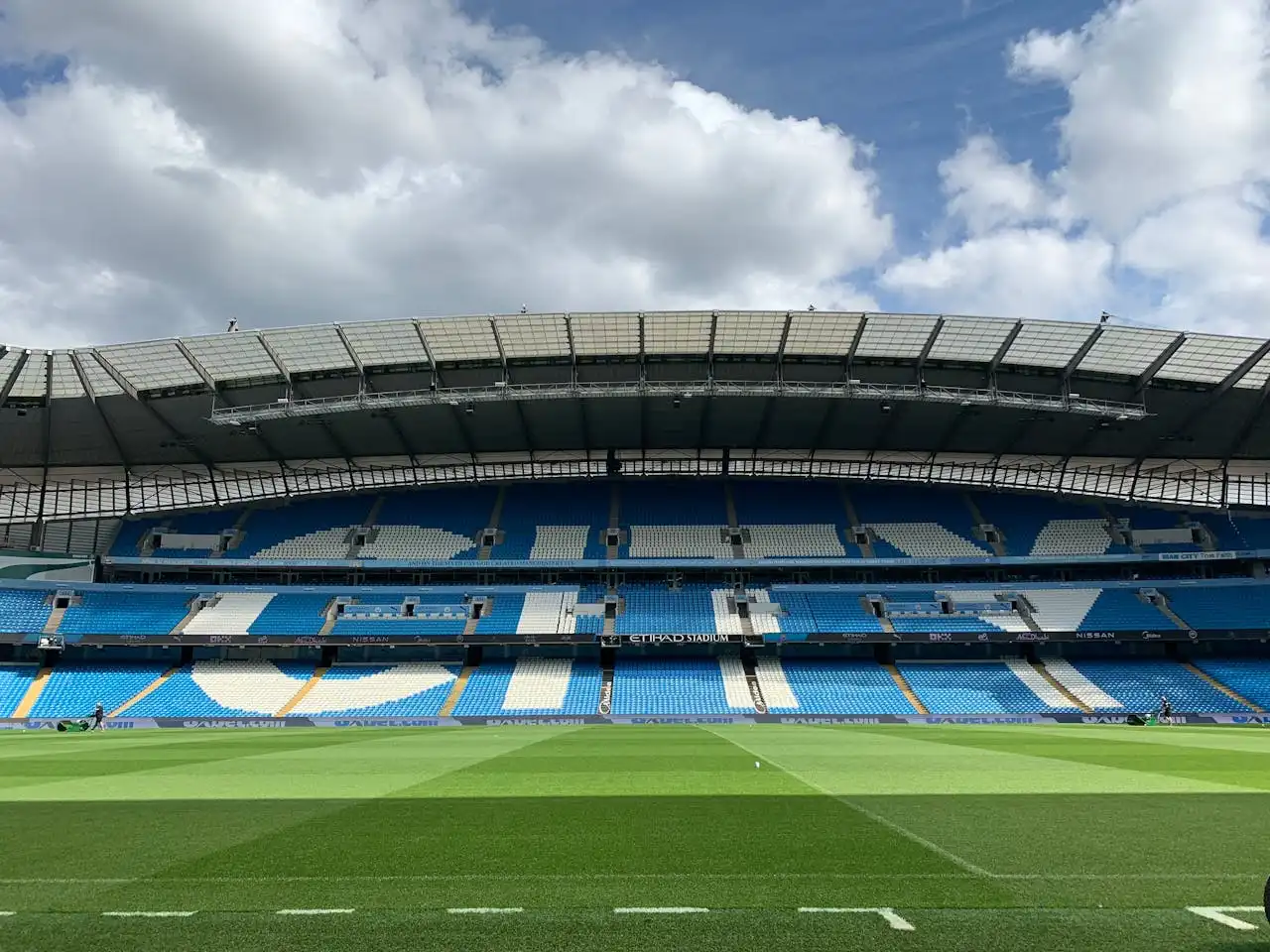Football's Turning Point: How Abu Dhabi's Acquisition Changed Manchester City Forever
Muhe - Friday, 18 July 2025 | 11:30 AM (WIB)


The Day the Earth Moved: August 2008
Then came August 2008. The financial world was teetering on the brink of collapse, but in Manchester, something entirely different was unfolding. On the very last day of the summer transfer window, a seismic announcement rocked the football world: Sheikh Mansour bin Zayed Al Nahyan, through his Abu Dhabi United Group (ADUG), had completed a takeover of Manchester City. It wasn't just an acquisition; it was a statement. This wasn't some fly-by-night operation or a wealthy individual looking for a hobby. This was serious. This was a nation-state flexing its financial muscle with a clear ambition: to turn a perennial underdog into a global superpower. The immediate fallout was, well, astonishing. Within hours of the takeover, the news broke that City had snatched Brazilian superstar Robinho from under Chelsea’s nose. Robinho! The sheer audacity of it sent shockwaves through the footballing fraternity. It was a clear sign: these new owners weren't messing about. Money talked, and boy, was it speaking volumes. Suddenly, the impossible felt, well, possible. The "noisy neighbours" were about to crank up the volume to eleven.From Underdogs to Unleashed Titans: The Transformation
But it wasn't just about throwing money at big names, though there was plenty of that. The initial years saw an influx of talent: Carlos Tevez, Yaya Touré, David Silva, Vincent Kompany, Sergio Agüero. These weren't just players; they were the building blocks of a dynasty. Under Roberto Mancini, the team started to gel, finally winning the FA Cup in 2011, their first major trophy in 35 years. The monkey was off their back. Then came THAT moment: May 13, 2012. Sergio Agüero’s injury-time winner against QPR, snatching the Premier League title from United on goal difference. The roar that erupted at the Etihad, and across the globe wherever City fans gathered, wasn't just celebration; it was pure, unadulterated euphoria. It was the culmination of a dramatic rags-to-riches story, proof that the investment was paying off. The vision, however, stretched far beyond the first team. The acquisition wasn't merely a chequebook exercise; it was a comprehensive blueprint for long-term dominance. Abu Dhabi invested billions into state-of-the-art infrastructure. The Etihad Campus, a sprawling, cutting-edge training facility, youth academy, and administrative hub, became a cornerstone. It wasn't just about buying talent; it was about *nurturing* it, about creating a sustainable footballing ecosystem that could rival the world’s best. Global scouting networks were established, commercial partnerships blossomed, and the Manchester City brand went from regional club to global phenomenon, plastered on billboards from New York to Shanghai. Managerial appointments followed a pattern of ambition and excellence. Manuel Pellegrini continued the winning ways, delivering another league title. But the real game-changer in management, for many, was the arrival of Pep Guardiola. His meticulous approach, tactical genius, and insatiable hunger for perfection elevated City to another stratosphere. With players like Kevin De Bruyne, Raheem Sterling, and eventually Erling Haaland joining the fold, City began not just winning, but dominating with a style of football that was both exhilarating and suffocatingly effective. Trebles, domestic doubles, repeated league titles – the silverware kept piling up, reshaping the very landscape of English football.The Ripple Effect and the Debates
Of course, this astronomical rise hasn't been without its detractors. The sheer scale of spending has sparked intense debates about financial fair play, about the ethics of state ownership in sports, and whether it creates an uneven playing field. Critics often point to "sportswashing" accusations and the undeniable link between the club's success and the vast wealth of its owners. These are valid conversations, and they are part of the complex tapestry of modern football. But from a purely sporting perspective, what Abu Dhabi achieved with Manchester City is an undeniable testament to vision, investment, and strategic execution. They didn't just throw money; they built an empire, piece by meticulous piece. Manchester City today is a far cry from the lovable, if often hapless, club of two decades ago. They are a global powerhouse, a benchmark for success, a club that consistently competes for every major honour. The turning point was undeniably that August day in 2008. It wasn't just a change of ownership; it was a complete paradigm shift, not just for Manchester City, but for what was deemed possible in football. They transformed from the noisy neighbours into the dominant force, a testament to what happens when ambition meets almost limitless resources, changing Manchester City, and indeed, the beautiful game, forever.
Liverpool vs Arsenal Prediction: Week 3 of the 2025/2026 Premier League
14 days ago

Rayo Vallecano vs. Barcelona Prediction: Week 3 of La Liga 2025/2026
14 days ago

Messi's Last Dance? The GOAT Hints at a Potential World Cup Farewell in 2026
15 days ago

Real Madrid vs Mallorca Prediction: Los Blancos Aim for Third Consecutive Win
15 days ago

West London Derby: Chelsea vs. Fulham Prediction, Week 3 Premier League Match
16 days ago

Manchester United vs Burnley Prediction: Tough Test at Old Trafford
16 days ago

The Roar of History: Why Almaty Ortalık Stadium Isn't Just a Venue, It's Kazakhstan's Heartbeat
16 days ago

Wayne Rooney’s Stark Warning: Can Manchester United Still Attract Elite Managers?
16 days ago

The End of the Road: Ole Gunnar Solskjaer's Turkish Adventure Concludes Abruptly at Besiktas
16 days ago

Argentina vs. Venezuela: Lionel Messi's Final Moments in Home?
16 days ago
